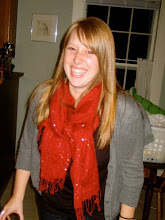Written on November 18th, 2010
For someone who was a vegetarian for a large portion of my young adult like I have witnessed my fair share of ram slaughter. Wednesday marked my second Tobaski spent as a PCV in The Gambia. Tobaski is the holiday that falls two lunar months after the end of Ramadan and its a BIG holiday--Halloween, Thanksgiving and Christmas all rolled into one. The days agenda includes praying, asking Allah and each other to forgive us for any of our known or unknown offenses, eating as much ram meat as humanly possible, showing off the newest and fanciest clothes, shoes and hairdos and going from compound to compound, house to house asking for money, candy or groundnuts.
The morning started with the men, older women, children and Ramatoulie, (the toubab exempted from normal social norms) going to the big mosque in the village for communal prayer. I always go back and forth on whether its acceptable/OK for me to use my toubab card to go pray/observe prayer when (1) I'm not Muslim and (2) all other women my age can't go pray. For Tobaski though I wanted to see what that experience was like and my little sister Fatou was pretty insistent that I go with her. So I wrapped up my head, put on my fancy new complet and headed off. When we got there we set up our mat among all the older women from our side of the village and they all clucked about my clothes and braids and helped me put on my shawl correctly.
The communal prayer was a very moving and powerful experience for me. Now people may want to debated the ethics of participating in a Muslim prayer service as a non-Muslim but for me this wasn't about being a Muslim or not. As we stood and knelt and placed our foreheads on the mat I thought about my blessings and how my experience here consistently reaffirms my belief that kindness and understanding is what can connect us all and that these ideals are more powerful than religion, race, gender and nationality. Finally, I prayed because I could think of no better way to express my joy and gratitude for the place the community of KJJ has made for me within it. After the prayer I shook hands with all the women who truly provide me with so much inspiration and motivation to continue my work here. Any lingering fear of how my act of prayer would be received was assuaged when I came across a teacher from our village later in the day. He told me he had seen me shaking hands with the old women at the end of the prayer. He said that he was very touched and he though "That's what a human being should be." I don't think I can get any better affirmation than that that I made the right decision.
After prayer came the ram sacrifice which starts the feasting of Tobaski. Every compound slaughters at least one ram, with larger compounds having more so in my village of 60+ compounds there were at least 100 rams slaughtered. That's alot of meat. After they are killed and cleaned children are sent all around the village with platters and bowls with piles of meat to be given out for charity. We gave away probably half our ram but received the same, if not more, back in the end so its probably safe to say that my compound, of about 15 people consumed a whole ram. Now half the compound has diarrhea (luckily not me) but that's a story for another day. The entire morning we spent cooking up "sauce" (potatoes, oil, onions, pepper, Jumbo, mustard and vinegar) which we inhaled hungrily around 4 pm with the two neighboring compounds. We all squatted around our bowls and dug in, scooping out sauce with our fingers and little pieces of bread. A very Gambian Thanksgiving.
After lunch was time for the adults to sit around and drink attaya while the kids put on their fancy new outfits and go salibo--which is basically trick or treating. They go from compound to compound in groups of four or five and collect minties, dalasi or groundnuts. The minties they consume immediately while the dalasi and groundnuts (which they sell for dalasi) will either be divided up amongst them or used to buy milk and attaya and radio batteries for a party. The difference between salibo and trick or treating however is that once the sunsets adults head out too. I went with my host sister, Mbayang, and some other girls from our part of the village. We walked along in the moonlight, ran into other salibo-ers, stopped to admire each others outfits and walked on. We stopped into the compounds of friends and family and asked for their forgiveness then they would give us dalasi and we would walk on. After about two hours we had been all over the village and pulled in over D100. By salibo or Halloween standards that's a good haul.
Back in my compound by 11 pm I lay out on my mat, stared up at the almost full moon and listened to the music blaring from some compound on the other side of the village. I had health, happiness and a belly full of ram--if that isn't being blessed I don't know what is.
